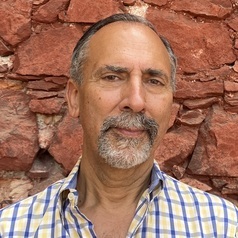Professor of Political Science and African Studies, former Dean of the UF International Center
The West African nation Niger is under military rule following a coup in which President Mohamed Bazoum was overthrown and held captive by members of his own guard.
On July 28, 2023, coup leaders named General Abdourahmane Tchiani as the new head of state, while international observers called for democratic norms to be reinstalled.
Where the coup leaves the country and what happens next is unclear. The Conversation turned to Leonardo A. Villalón, political scientist and West African expert at the University of Florida, for some answers.
How did this coup come about?
At first it was unclear whether this even was a coup. Although there have been indications of tensions both inside the military and between military and civilian leaders, a coup certainly wasn’t expected. I was in Niger last month, and there was nothing to suggest that a coup was about to take place. And in contrast to what happened in Mali or Burkina Faso in recent years, the coup wasn’t preceded by widespread protests or popular calls for a change in leadership.
So, when members of the presidential guard seized Bazoum on July 26, it wasn’t immediately clear what was going on, or whether their actions would be successful. The first real test for the coup leaders was whether the rest of the military would back their actions. If they hadn’t, it could have set off widespread fighting in the country. But it has turned out – so far, at least – to be a bloodless coup. After initial wrangling between different factions over who would take control, the country’s generals did back the coup.
Meanwhile, the democratically elected president continues to be held hostage under house arrest.

Map: The Conversation, CC-BY-NDCreated with Datawrapper
What are the consequences of the coup?
Although it has so far been a bloodless coup, the consequences are nonetheless catastrophic for Niger and for the region.
The nation is among the least developed on Earth, with high levels of poverty and a history of instability and coups.
But it has emerged in recent years as a relatively stable force in the region and as a key ally for the West in dealing with terrorism and violence that has spiraled since a coup in neighboring Mali in 2012. That event, itself triggered by the NATO intervention in Libya and the fall of Moammar Gadhafi, kick-started a decade of instability in the region.
Yet just two years ago, Niger saw its first ever democratic transfer of power from one elected president to the next. The election was by no means perfect, but it was rightly seen as a significant accomplishment. That is why this coup is particularly problematic: It represents a rolling back of the progress made in recent years in slowly building functional state institutions and democratic processes.

